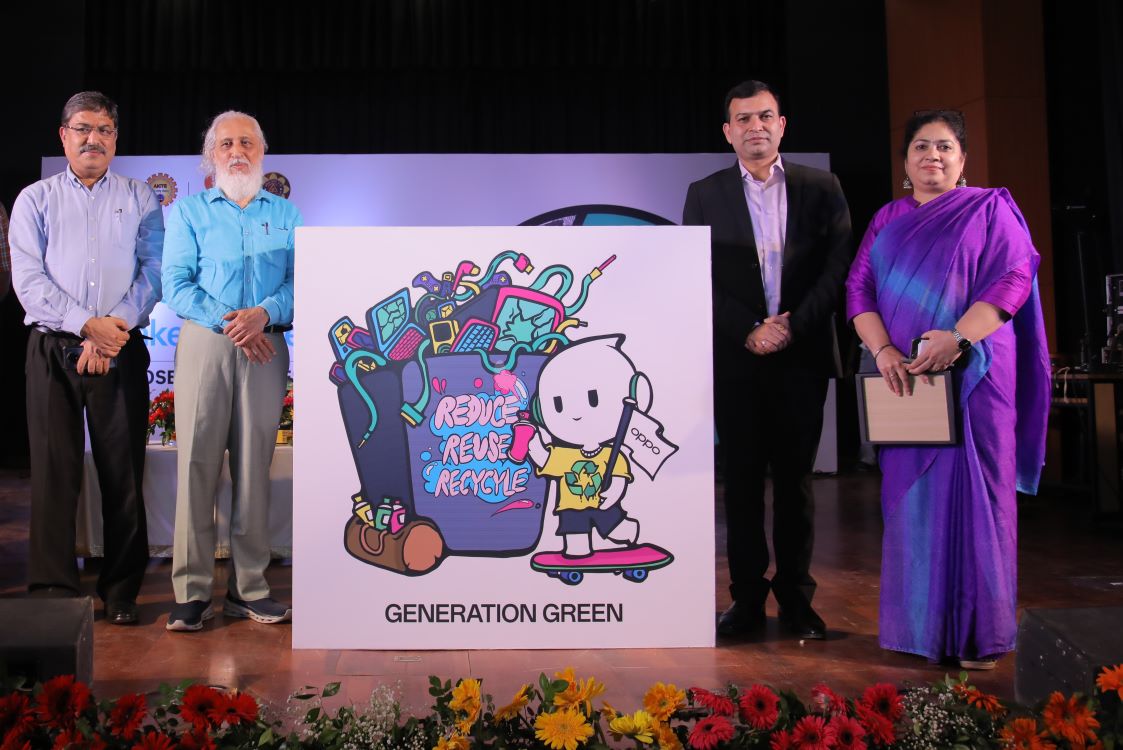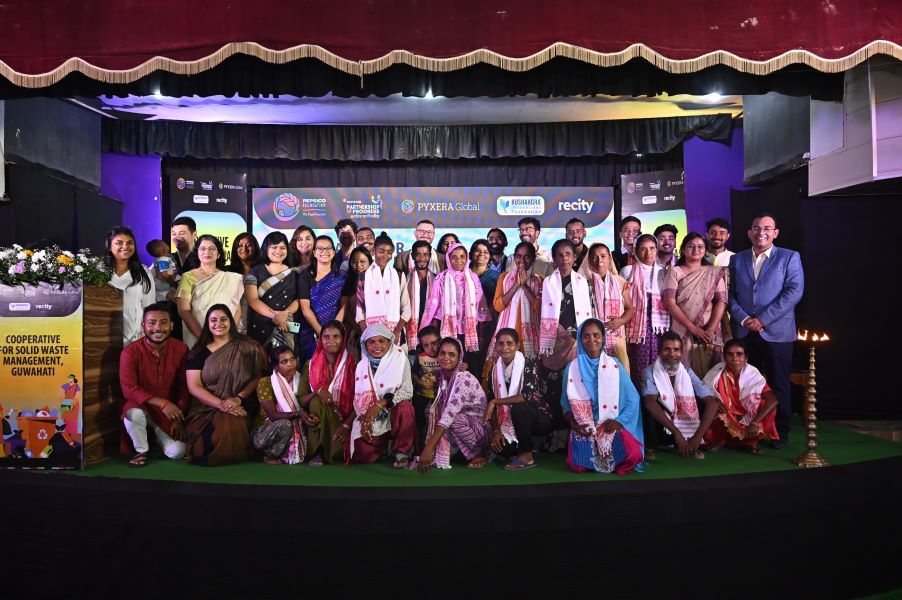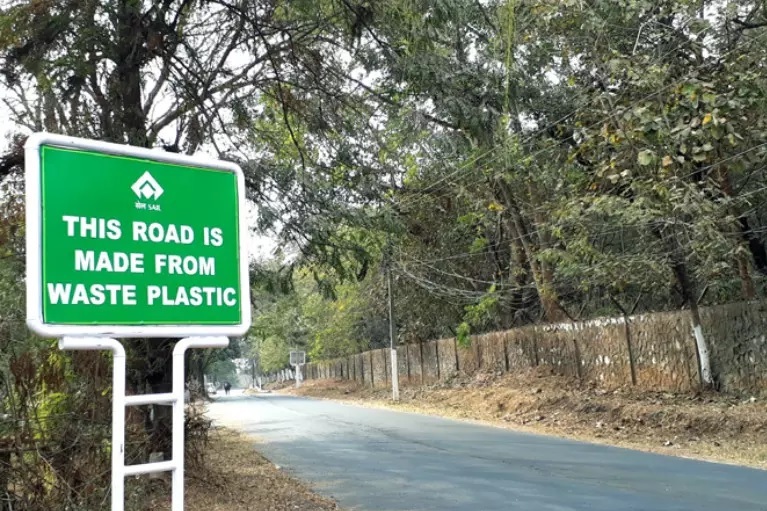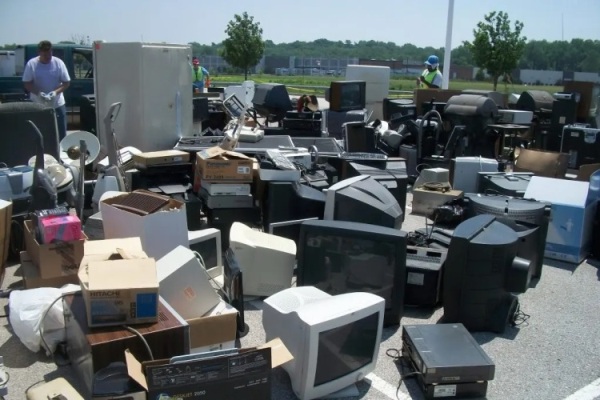Mumbai, April 22, 2024: Celebrating World Earth Day and its theme of Planet vs Plastics, HDFC Bank Parivartan, the CSR initiative of HDFC Bank, has unveiled a unique 26-foot by 6-foot wall mural created by young students which is made of upcycled plastic bottle caps, and marks the commencement of its solid waste management project in partnership with the Waste Warriors Society in Barwala, Dharamshala.
Unveiled on World Earth Day, the mural aims to raise awareness about the adverse effects of unregulated waste disposal, especially on fragile ecosystems such as the Himalayas, while also fostering a mindset of innovative waste upcycling.
Nusrat Pathan, Head CSR, said, “HDFC Bank Parivartan has taken a decisive stance against plastic pollution. Our initiatives align well with the theme of this year’s Earth Day, Plastic vs. Planet. We are dedicated to our commitment to drive positive change in rural communities by supporting sustainable waste management initiatives. Our primary focus lies in mitigating plastic waste dumping and burning, particularly in areas frequented by both locals and tourists. With an estimated outreach to 25,000 individuals, we aspire to inspire behavioural change and establish enduring waste management systems. Through our waste management initiatives, we reaffirm our dedication to cultivating a plastic-free future and enhancing the well-being of communities in ecologically sensitive regions.”
The consumption of plastic in India is increasing by a compounded annual growth rate (CAGR) of 10% every year. This prioritizes the importance of recycling and recovery of the plastic waste in the overall economy of plastics. Effective waste management is one of the most critical interventions that can help address the glaring issue of plastic pollution, especially in rural regions.
With the addition of this project, HDFC Bank Parivartan now covers over 600+ villages and 14 cities across the country in Himachal Pradesh, Uttar Pradesh, Jammu & Kashmir, Kerala, Odisha, Jharkhand Chhattisgarh, Telangana, Bihar, Uttarakhand, Delhi and Assam through its Waste Management interventions that prioritize people and the planet. The bank’s CSR programme aims to have in place waste management systems in over 1000 villages and 15 cities across the country by 2025.
In the Kangra district of Himachal Pradesh, HDFC Bank has partnered with Waste Warriors for a three-year project to address rural waste management and promote responsible tourism in Dharamshala and Bir Billing. With over 5 million tourists annually, waste generation poses threats to wildlife and communities. The project focuses on transforming waste materials into marketable products, empowering locals, especially women and youth, through up-cycling training. It ensures 100% doorstep waste collection and segregation, aligning with government schemes for lasting impact.
Apart from Himachal Pradesh, HDFC Bank Parivartan executes waste management projects nationwide. In Chhattisgarh, the Bank is working with the Centre for Environment Education (CEE) to execute Waste Management Projects targeting 6 cities and 300+ villages. The project has a unique mix of Material Recovery Facility and Recycling Facility. Under the project, the Centre has processed 4080 metric tonne of dry waste, 55% of which is plastic.
The Bank is also establishing waste centres in association with Gramin Vikas Trust across 85 villages in Golaghat, Assam, benefiting 16,526 households. In Kerala, HDFC Bank Paricartan collaborates with M S Swaminathan Research Foundation to enhance waste management and income generation in select districts. By increasing plastic waste baling capacity to 1,000 kg per day, average monthly incomes of Haritha Karma Sena members rose from Rs 8,000 to Rs 15,000. In Uttar Pradesh, HDFC Bank Parivartan and SAAHAS drive impactful change across 80 villages through source segregation and scientific landfill disposal.
Projects aim to sustainably address plastic waste recycling, recovery, and circular economy in cities and rural areas. Objectives include enhancing dry waste management, especially Multi-Layered Plastics (MLPs), in partnership with municipal and block-level administrations. This involves establishing Material Recovery Facilities (MRFs) with recyclers, enabling processing of 6-10 metric tonne of dry waste daily in modular structures, initially set at 5 metric tonne per day and upgradable.











.jpg)








